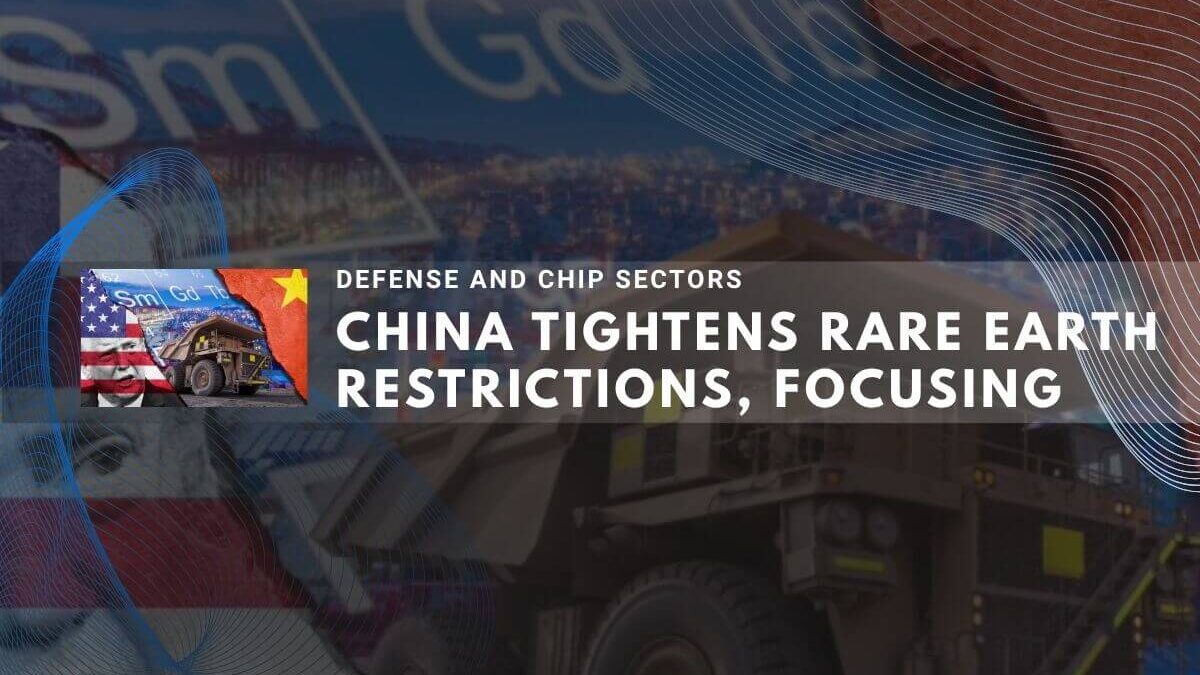China has expanded its rare earth elements (REEs) export restrictions, adding five new elements and imposing tighter controls on refining technologies and semiconductor users. These measures come just weeks before a planned meeting between U.S. President Donald Trump and Chinese President Xi Jinping in South Korea.
Expanded Rare Earth Restrictions
- China now restricts exports of 12 rare earth elements, adding holmium, erbium, thulium, europium, and ytterbium to the list of controlled materials.[1][2][3]
- Controls apply not only to rare earth metals but also to downstream materials, components, and related refining and processing technologies.[4][5]
- New rules require foreign producers using Chinese rare earths or related technologies to obtain Chinese export licenses, even if no Chinese companies are involved in the transaction.[6][1]
- These enhanced regulations take effect from November 8, 2025, with additional rules on foreign companies effective December 1, 2025.[2][4]
Focus on Defense and Semiconductor Sectors
- Overseas defense firms will generally be denied licenses to acquire Chinese rare earth materials or related technologies.[5][6]
- Semiconductor users face increased scrutiny, with export licenses granted on a case-by-case basis for advanced chips including those 14 nanometers or smaller and memory chips with 256 layers or more.[1][2]
- Restrictions cover research and development in artificial intelligence with potential military applications.[1]
- South Korea’s semiconductor industry, including Samsung Electronics and SK Hynix, is reviewing the impact and continues discussions with China.[1]
Strategic Context and Global Impact
- China controls approximately 90% of the world’s processed rare earth elements, critical for electric vehicles, aircraft engines, defense systems, and high-tech manufacturing.[7][8]
- The export controls strengthen China’s negotiating position ahead of the Trump-Xi summit, increasing leverage amid ongoing trade tensions.[7][6][1]
- The policies reflect a tit-for-tat approach mirroring U.S. export restrictions on semiconductor equipment and technology to China.[6]
- Global efforts from the U.S., European Union, and allies aim to develop alternative rare earth supply chains to reduce dependency on China.[4][6]
- Shares of Chinese and U.S. rare earth companies surged following the announcement, signaling market sensitivity to these moves.[9][2]
